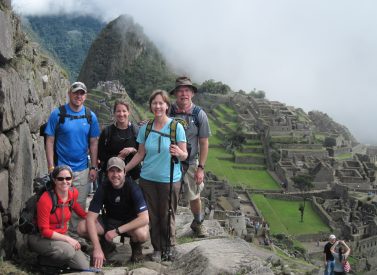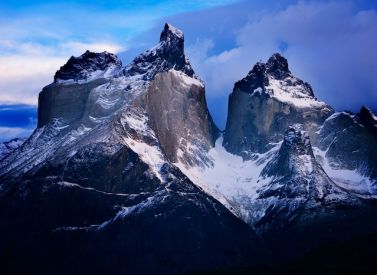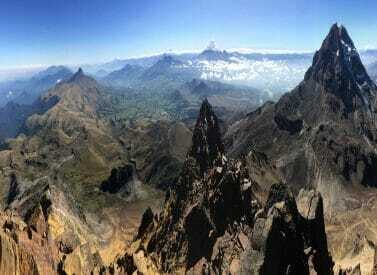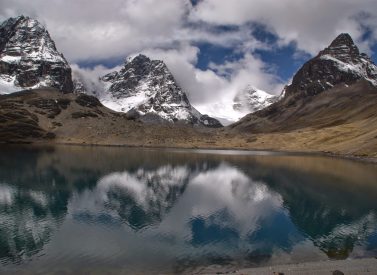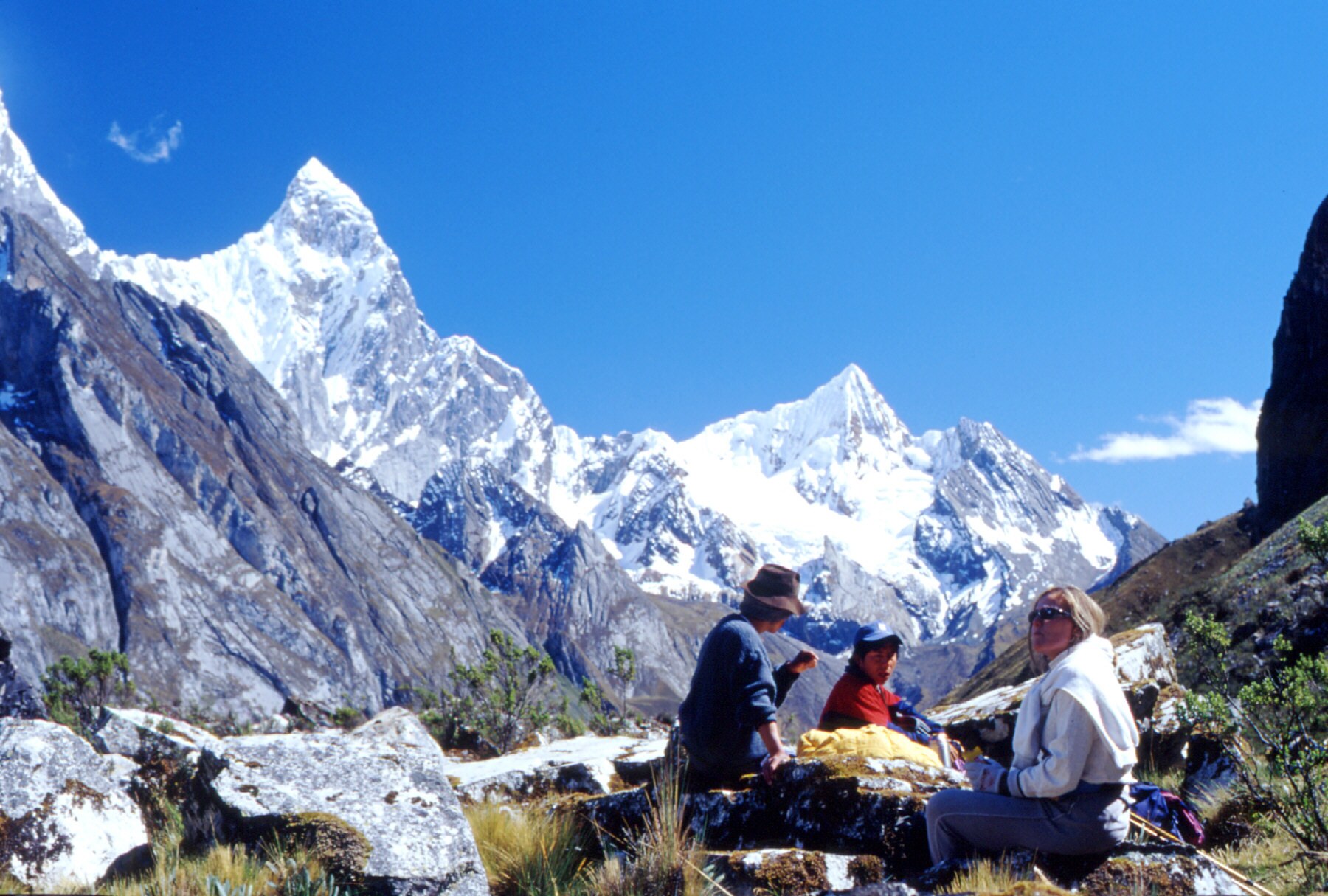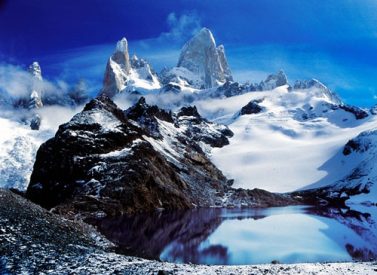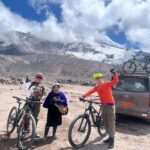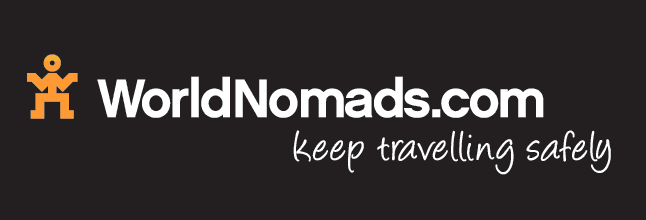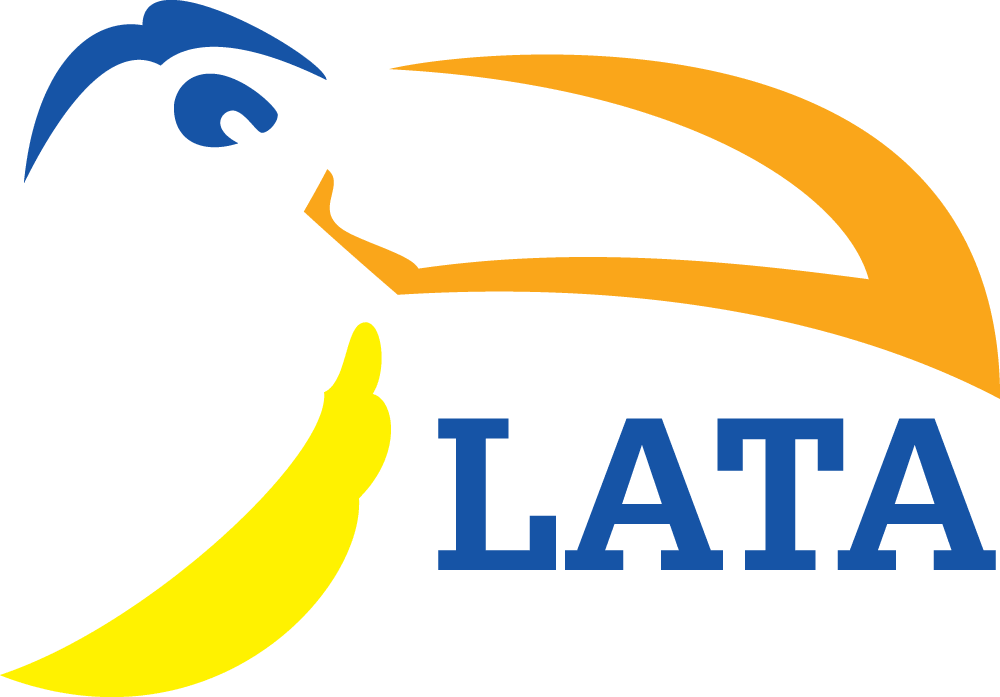Drinking water on treks
The sterilising tablets 'MicroPur' can be bought in most pharmacies in South America, or from home before travel if you wish to be sure to find the.
With these you put the tablets in the water and then wait 40 minutes before drinking. Try to ensure that the mouth of the bottle is also fully sterilised, by tipping your bottle up and down and allowing sterilised water to flow out before you drink.
UV filter sterilising pens can also be taken in case you wish to fill up your water bottle from another source.
Typical trekking day
On the trek, all equipment is transported for us and meals are prepared by our local cook.
Vegetarians and many other dietary requirements are catered for without problems. Please let us know in advance of any requirements you have.
You wake early, usually around 06.00-7.00.
Breakfast is served in a dining tent, and often consists of hot drinks, porridge, toast, jams and bread, and your guide will explain the day's trekking plans.
It can be cold in the morning mountain air, and, after eating and then packing your daypack, we set off walking, usually for a couple of hours at a time, with plenty of breaks to rest and explore ruins.
Lunch is around 12.00-13.00. Some days require us to have a boxed lunch - sandwiches, cheese, crackers, fruit (if possible) and chocolate bars.
If it's possible to set up the kitchen, then lunch can feature soups, meats, salads and fish, with vegetarian options and hot drinks too.
We aim to get to camp about 16.00-17.00 on most days, and your tent will be set up for you, although you may be asked to help out if conditions have been bad and the team needs assistance.
The campsites are comfortable and around 17.00 hot drinks, popcorn and other snacks are served to help you recover energy.
Dinner is served around 19.30, and will feature pasta, mashed potatoes, meat, fish or vegetarian options, followed by hot drinks and a pudding.
Most people go to bed fairly early after a long day trekking, to recover energy for the morning.
With some treks, campsites may vary from those indicated above as camping spots are assigned by park authorities.
Altitude
However, when gaining altitude, air pressure drops and the amount of oxygen reaching the lungs is reduced. Although we build plenty of acclimatisation time into our itineraries, certain ill-effects are possible. Nevertheless, all of these can be minimised or prevented if care is taken.
On reaching heights above 2,500m (approx. 8,200 ft), especially when ascent has been straight from sea level, heart pounding, mild headache and shortness of breath are normal, especially on exertion.
Acute mountain sickness (AMS) is a syndrome known locally as soroche, whose symptoms can include of bad headache, dizziness and nausea).
To avoid AMS, you should:
- Rest for a few hours on arrival at altitude and take it easy for the first couple of days. Note: you may feel fine on arrival and tempted to exert yourself as normal. Don’t be fooled: you might be benefiting from oxygen brought in your blood from sea level.
- Drink plenty of water to avoid dehydration (altitude is a diuretic). Coca tea (mate de coca) helps alleviate symptoms.
- Eat light meals, with high carbohydrate and low fat and protein content. Dine early, allowing digestion time pre-sleep.
- Avoid over-exposure to the strong highland sun (UV rays are very powerful) - especially in the early stages - making sure you wear a broad brimmed sunhat. Apply lip-salve to prevent chapped lips.
- Avoid or minimise consumption of cigarettes and alcohol. Avoid sleeping pills.
- If you do get AMS: Rest, take non-aspirin painkillers (for headache) and coca tea. Symptoms should subside after a day or two.
- Pregnant women, people with a history of heart, lung, kidney or blood disease or blood pressure problems, should consult their doctor before traveling to high altitude.
Fitness - easy treks
It is not easy to grade the fitness level required for any trek, since it is a subjective matter.
However, for treks classified as easy, expect to trek 2-4 hours per day carrying only your day-pack, with some ascents and descents.
Fitness
It is not easy to grade the fitness level required for any trek, since it is a subjective matter.
However, for treks classified as moderate, expect to trek 5-7 hours per day carrying only your day-pack, with several long ascents and descents.
Fitness - hard treks
It is not easy to grade the fitness level required for any trek, since it is a subjective matter.
However, for treks classified as hard, expect to trek 7+ hours per day carrying a heavy back-pack (15-20kg), with several long ascents and descents.
Responsible Travel - our ethos
Andean Trails believes in Responsible Travel and actively supports several community projects.
Please see Our Advice and Our Ethos for more, and learn about the Projects We Support.
We operate the Inca Trail, our treks and tours with local firms.
We make sure that on our tours and Inca Trail we employ local staff, who are paid fair wages.
With the Inca Trail, We provide free life insurance to all of our porters. Tented accommodation and meals are provided for all trekking staff as well as foam mats, sleeping bags and rain ponchos. We have also provided the staff with trekking shoes. We ensure our porters carry a maximum of only 20kg. We offer them backpacks and they generally use back supports.
Clean burning fuel is used to cook the meals on the Inca Trail and porters carry gas stoves and butane bottles. We use biodegradable detergents when washing the cooking and eating utensils. If any part of our tour or trek is operated by another company, we try to ensure that high standards are maintained.
Our additional support helps the Huchuy Yachaq project which supports children and families in one of the poorest communities in the district of Cusco.
Responsible Travel - travel tips
- Find out about your destination - take some time before you go to read about the cultural, social and political background of the place and people you are visiting.
- Go equipped with basic words and phrases in the local language - this may open up opportunities for you to meet people who live there.
- Buy locally-made goods and use locally-provided services wherever possible - your support is often vital to local people.
- Pay a fair price for the goods or services you buy - if you haggle for the lowest price your bargain may be at someone else’s expense.
- Be sensitive to the local culture - dress and act in a way that respects local beliefs and customs, particularly at religious sites.
- Don’t undermine the local economic systems – we recommend you don’t give gifts, especially sweets as there are few dentists in the Andes. Much better to spend time chatting, playing and showing postcards of home. If you would like to donate clothes and shoes etc we are more than happy to do so through the relevant channels. Your tour leader can do this for you and some of the projects we support can be visited.
- Ask permission before taking photographs of individuals or of people’s homes - and remember that you may be expected to pay for the privilege.
- Avoid conspicuous displays of wealth - this can accentuate the gap between rich and poor and distance you from the cultures you came to experience.
- Make no promises to local people that you can’t keep - be realistic about what you will do when you return home.
- Minimise your environmental impact - keep to footpaths and marked routes, don’t remove any of the natural habitat and reduce the packaging you bring.
- Don’t pollute local water courses- use biodegradable products, and wash basins.
- Slow down and enjoy the differences - you’ll be back with the familiar soon enough.
Maps
Also see:
Stanfords bookshop,
London.
Tel: +44 (0)207 836 1321.
http://www.stanfords.co.uk/
Find Tours
Talk to our expert
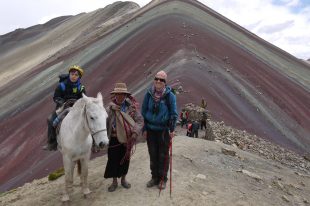
Ask Kathy Jarvis
Ask a question and our expert in this area will have your answer.
Make an EnquiryEnquire
Can’t find what you’re looking for? Get in Touch
+44 (0)131 378 5593
+44 (0)131 554 6025
Testimonials

A. Hogarth, UK, 2010
» Paine O Circuit Full Trek: Guided

A. Wheatstone, UK, 2012
» Climb Aconcagua, 360 Route





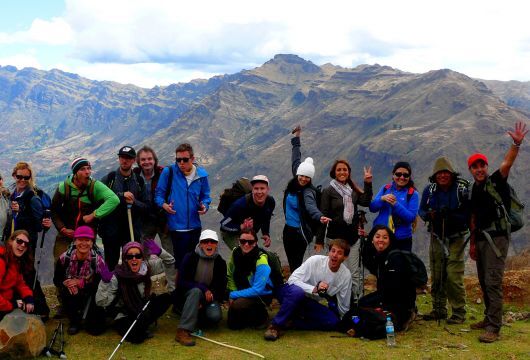
 a Group Tour
a Group Tour  a Tailor Made Tour
a Tailor Made Tour 